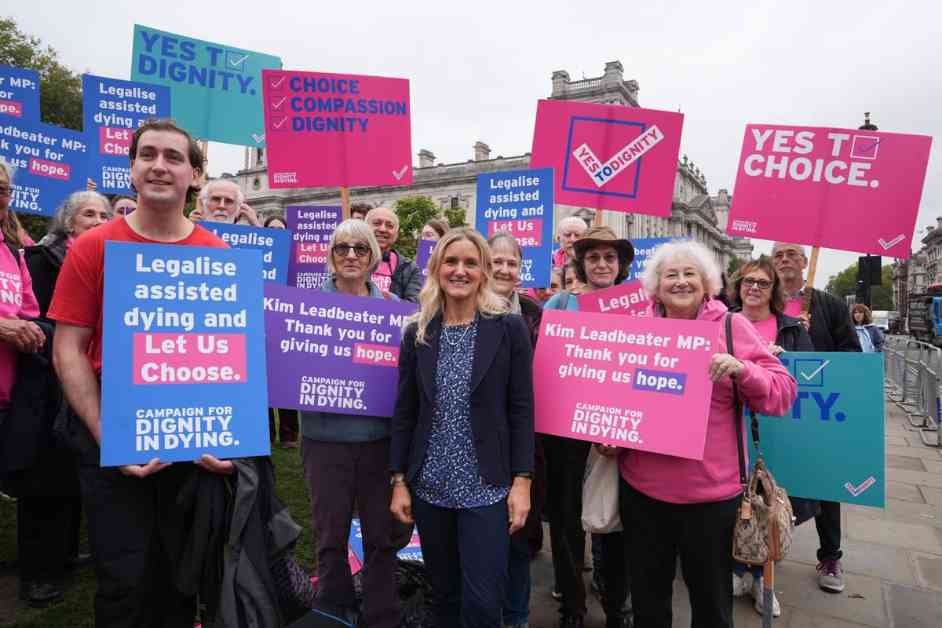Assisted dying for terminally ill individuals is a topic that has sparked heated debates and discussions. A new bill has been proposed in England and Wales to legalize assisted dying for mentally competent adults with a life expectancy of six months or less. This bill, known as the Terminally Ill Adults (End of Life) Bill, aims to provide a legal option for individuals who have a settled wish to end their lives.
The proposed legislation would require approval from two doctors and the High Court for an individual to proceed with assisted dying. It also includes strict provisions to prevent coercion or pressure on individuals to choose this option. Anyone found guilty of pressuring someone to end their life could face a maximum prison sentence of 14 years.
Proponents of assisted dying argue that it provides individuals with terminal conditions the choice to control their death if they find their suffering unbearable. On the other hand, opponents, such as the campaign group Care Not Killing, believe that legalizing assisted dying could put vulnerable individuals at risk of feeling pressured to end their lives.
The current law in England, Wales, and Northern Ireland prohibits assisted suicide, with a maximum prison sentence of 14 years. In Scotland, assisting someone’s death can lead to charges of murder or other offenses.
Labour MP Kim Leadbeater introduced the bill to give terminally ill individuals the choice at the end of life. The bill is set to undergo a debate and first vote on 29 November, with further stages of scrutiny in the House of Commons and the House of Lords.
If the bill passes, certain criteria must be met for an individual to be eligible for assisted dying. They must be an adult aged 18 or older, have mental capacity, be terminally ill with a life expectancy of six months or less, and have expressed a clear, settled wish to end their life. The process involves assessments by two independent doctors, consultation with specialists, and a ruling by a High Court judge.
Doctors would not be obligated to participate in assisted dying services, and individuals must self-administer the medication. The proposed law also includes safeguards to prevent coercion and pressure on individuals to choose assisted dying.
The issue of assisted dying has not been voted on at Westminster for almost a decade. Previous bills proposing assisted dying have been rejected by MPs. Private members’ bills, like the current one, are considered during Friday sittings in the House of Commons, with a specific time frame for debate and potential voting.
As the debate on legalizing assisted dying continues, it remains a contentious and complex issue that requires careful consideration of ethical, legal, and moral implications. The outcome of the proposed bill could have far-reaching consequences for individuals facing terminal illnesses and their end-of-life choices.












